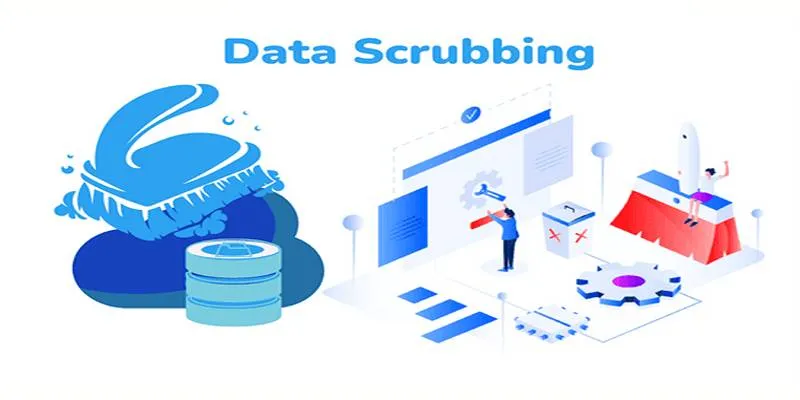Businesses today face a critical challenge: meeting customer expectations while respecting their privacy. Consumers demand personalized marketing experiences, but they are increasingly aware of how their data is collected and used. Striking a balance between leveraging customer data for marketing and respecting privacy has never been more important. This blog explores how businesses can achieve this balance.
Why Data Privacy Matters in Marketing

At the core of data privacy is trust. Your customers trust you with their personal information, whether it’s contact details, browsing behavior, or purchase history. Violate that trust, and you risk losing not only current customers but also potential ones.
- 84% of consumers say they want more control over how their personal data is used, according to a Pew Research report.
- 79% of customers are more loyal to companies they trust with their data, a report by Salesforce revealed.
Beyond trust, mishandling customer data can lead to severe consequences, including fines, reputational damage, and legal action. High-profile breaches and scandals like those involving Facebook and Cambridge Analytica have made data privacy a hot-button issue, pushing it to the forefront of public consciousness and regulatory frameworks.
Impact of Data Privacy Laws on Marketing
To protect consumers, governments worldwide have been stepping in with stricter regulations. Understanding these is critical for modern marketers. Below are two of the most influential laws:
General Data Protection Regulation (GDPR)
Enacted by the European Union, GDPR is one of the strictest data privacy laws globally. It requires businesses to:
- Obtain clear, informed consent before collecting personal data.
- Ensure users can easily opt out of data collection at any time.
- Provide transparent information about how data is collected, stored, and used.
California Consumer Privacy Act (CCPA)
CCPA applies to businesses operating in California and emphasizes consumer rights in data handling, allowing individuals to:
- Know what personal data is being collected.
- Delete data upon request.
- Opt out of the sale of their information.
Non-compliance with data privacy laws can result in hefty penalties. GDPR violations, for example, can cost up to €20 million or 4% of a company’s annual revenue, whichever is higher. Even if your business isn’t located in regions with stringent data privacy rules, these regulations have set a global benchmark. Adhering to them not only strengthens trust with your audience but also ensures your business is prepared for evolving privacy standards worldwide.
Strategies to Balance Data Privacy and Marketing
Balancing the need for personalized marketing with respect for customer data starts with clear, actionable strategies. Here’s how your business can succeed:
1. Be Transparent About Data Collection
Start by letting customers know exactly what data you’re collecting and why. Transparency builds trust.
- Include clear privacy policies on your website.
- Use cookie banners to inform visitors about tracking and give them options to customize preferences.
- Proactively communicate with customers about how their data will benefit them, such as offering personalized product recommendations or exclusive deals.
2. Prioritize Consent and Data Control
Always ask for explicit consent from users before collecting their data. This can be done through:
- Opt-in checkboxes for email subscriptions.
- Permission-based tracking for online activity.
- Giving users control to manage what data they share, such as allowing them to edit preferences or delete their data.
3. Use Anonymized Data for Analysis
Collecting anonymized data can help you understand broad trends and user behavior without raising privacy concerns. By stripping data of personally identifiable information (PII), your business can still make data-driven decisions while minimizing risk.
For example, instead of tracking an individual user’s behavior, you can analyze patterns across demographics like age groups or geographic locations.
4. Leverage Contextual Targeting in Advertising
Contextual targeting focuses on the context of a web page rather than user- specific data. For example:
- Showing ads for hiking boots on a travel blog.
- Promoting vegan recipes on a site about plant-based diets.
This approach is both privacy-conscious and effective, as it respects user anonymity while still delivering relevant ads.
5. Build First-Party Data
Moving forward, businesses should rely more on first-party data, which comes directly from your customers, rather than third-party data from external sources. Examples include:
- Email addresses gathered through voluntary newsletter sign-ups.
- Purchase history from your e-commerce platform.
- User preferences shared via surveys or questionnaires.
Not only does this approach enhance data privacy, but it also improves the reliability of your insights.
6. Invest in Secure Data Management
A strong data security plan is essential for maintaining customer trust. Steps to ensure secure data management include:
- Encrypting sensitive customer data.
- Regularly updating software to protect against vulnerabilities.
- Training employees to handle data responsibly.
7. Communicate Privacy as a Value Proposition
Consider making data privacy a key component of your brand identity. Highlight your commitment to protecting customer data in your marketing efforts. For example:
- Launch campaigns that emphasize ethical data usage.
- Include a “privacy guarantee” badge on your website.
- Share testimonials or reports showcasing how your company handles data responsibly.
Examples of Balancing Data Privacy with Marketing
Many industry leaders have already started successfully integrating privacy measures into their marketing strategies:
- Apple has embraced privacy as a core value with its “Privacy. That’s iPhone.” campaign, highlighting features like app tracking transparency and on-device data processing.
- Procter & Gamble uses a mix of anonymized data and context-based ads to maintain privacy while targeting consumers effectively.
- Nike encourages customers to create profiles and share preferences voluntarily, rewarding them with hyper-personalized experiences like tailored product recommendations.
These companies demonstrate that respecting privacy doesn’t have to come at the cost of effective marketing.
How Balancing Privacy Impacts Brand Growth

When done right, prioritizing data privacy can actually fuel long-term brand growth. Here’s how:
- Builds Trust : Customers are more likely to engage with and remain loyal to businesses that respect their privacy.
- Enhances Customer Experience : By focusing on transparency and personalization, brands improve customer satisfaction and retention.
- Minimizes Risk : Compliance with laws and ethical data practices reduces the likelihood of costly legal issues and reputational harm.
Conclusion
Prioritizing data privacy is not just a responsibility but an opportunity for brands to differentiate themselves in a competitive market. By fostering trust, improving customer experiences, and mitigating risks, businesses can create a solid foundation for sustainable growth. Embracing data privacy is more than compliance—it’s a commitment to building stronger relationships and driving long-term success.
 zfn9
zfn9






















